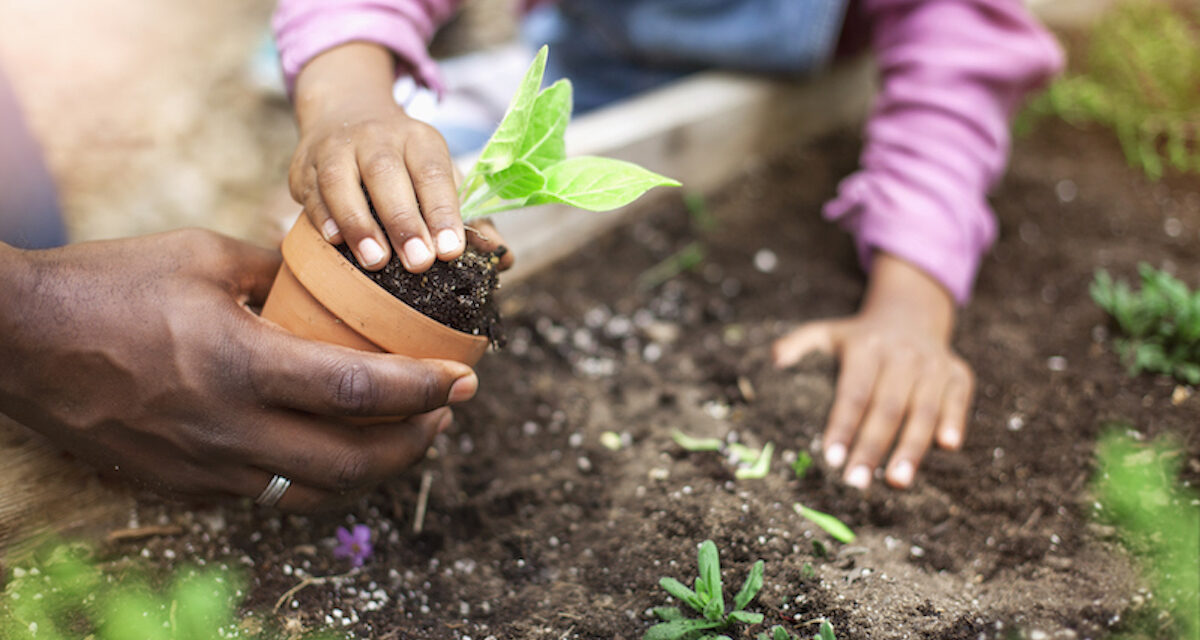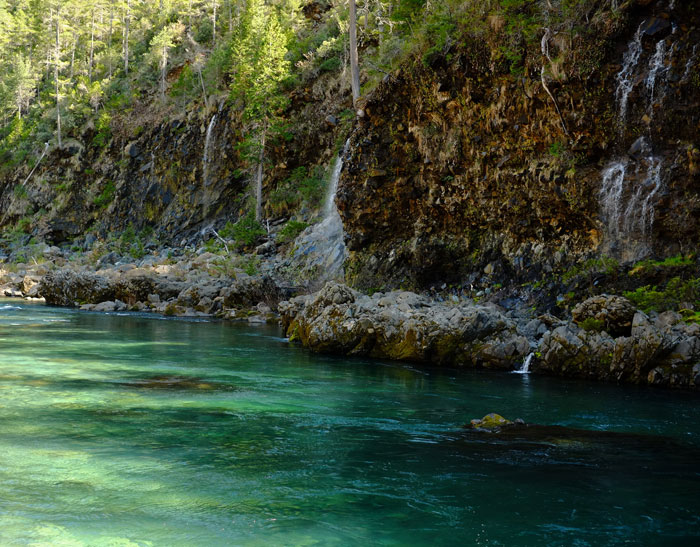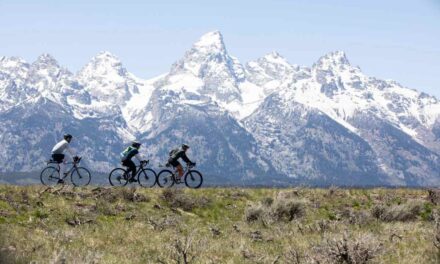- Climbing at Any Age - 09/19/2023
- Raising Conservation Kids - 10/20/2020
- Berkeley to Everest & Backin 14 Days - 01/27/2020
Eight tips to help your kids become environmental stewards
By Dierdre Wolownick
Children are the embodiment of hope — and we need lots of that right now if our planet is going to continue to support the billions of people on it and provide a healthful, beautiful environment in which to pursue happiness. Whether you’re alarmed by the condition of the world we’re leaving to our children, or you think it’s in fine shape, your children are the future stewards of this planet that we all share. Their decisions, as they become adults, will shape the world to not only survive, but flourish.
So how do you raise kids to love the planet and care for it so that their children and grandchildren will also have a beautiful home? Here are a few simple steps you can adopt into your family’s daily routines, that can help your kids understand the difference they can make, in their daily lives, to help ensure that their mother, Earth, continues to welcome them.
1. TALK TO THEM
When our kids were little, we didn’t talk about conservation. But we did talk about love, care and respect — for our home, ourselves, and our surroundings. At Lake Tahoe, we talked about how fragile an environment it was, how easily damaged. As we crossed the country to visit grandparents, we talked about the landscape and animals we saw, and how our behavior affects them. How many there are, how many there used to be. Kids understand far more than we often give them credit for. And they’re deep thinkers — if you give them heady stuff to think about, they will.
2. GET OUT THERE
Young children are expert travelers. After all, in their new world, every day is an adventure — and it doesn’t matter to them where that adventure takes place. Even a short day trip is an exciting adventure, for a child. By the time ours were five and seven years old, they’d experienced the unique environment of Death Valley, walked reverently under the Sequoias, played at beaches (and picked up litter), been scared by bears running past and awed by the unfathomable abyss of the Grand Canyon. At each place, they learned more about our world.If kids have never walked among giant sequoias, breathed their scented air and felt the religious-like silence of the forest around them, they probably won’t really care if a lumber company decides to cut them down.
3. MAKE YOUR HOME A LEARNING ADVENTURE
You don’t need to travel in order to raise kids who care about their world. Kids are learning sponges; all day long they observe and draw conclusions — and those conclusions create who they become as adults. If they see that you value nature and your environment, at the park, on the school grounds or just in your own backyard or street, and don’t fill it with litter; if you’re careful about what you throw away and think about where it goes, you don’t waste water and other resources — your children will absorb those values and imitate them. You just need to be aware of what you’re modeling for them, at home or elsewhere. Everywhere! Kids are always watching … and learning from what they observe.
4. INVOLVE THE WHOLE EXTENDED FAMILY
Do all the members of your extended family and groups of friends share your ideas about what’s good for the planet? Probably not, at least not about everything. Do they care at all? Do they make fun of your efforts? Try to talk you out of them? Even if they disagree vehemently and model the opposite behavior from what you’d like your children to emulate, those behaviors can be a valuable learning tool for your own kids. Seeing how other people behave and then talking about it with your kids can be a far more effective lesson than if you’d never let them see such behavior.
You, and your children, can learn just as much from a bad example as from a good one — sometimes more. The key is to talk about it.
5. SLOW IT DOWN
When my daughter Stasia was born, we were living in Japan (teaching English). We had no car, so she went everywhere on the back seat of my bicycle. Or walked, holding our hands, stopping often to explore, examine and enjoy. And when both children started elementary school (in California), the three of us biked there together every morning. No air pollution for us, no carbon-based fuels, no huge machines. We traveled the two miles under our own power, stopping when life offered something interesting, and had great fun!
Stasia has become a thoughtful adult who lives in Portland, OR, and travels by bike only … no car. She composts at home, grows some of her own food and works toward outdoor stewardship at her job. She makes decisions every day in her life that connect her to the planet and help take good care of it. Her brother Alex Honnold makes similar choices in his life and, as a well known athlete, uses his notoriety to promote such choices world-wide.
6. GROW IT, EAT IT, LEARN FROM IT
One simple way to help connect your children to their environment is to plant a garden with them. Encourage them to help with the planting, the care and, of course, the tasting. Even if you have a brown thumb, you can raise radishes, herbs, lettuce, potatoes, zucchini — these are foolproof. And no produce from the supermarket can rival the taste of something fresh from your garden! Your kids will know the difference — and that difference just might influence a decision or two that they make as adults.
7. TO SCREEN, OR NOT TO SCREEN
Kids learn mainly by observing and by doing. As parents, you need to decide what’s worth doing, what your kids will remember and maybe learn from. Do yours spend more of their time outdoors, or reading, or making their own music — or in front of a tiny screen?
And you? When you’re all out together, rushing somewhere, going shopping, at any one of life’s many errands, are you on your little screen, in another world, or do you talk with them about what they see around them? Although your actions provide examples for them, the best way to influence the way they think is by talking with them.
And it doesn’t matter how big the screen is. We didn’t have a television in the public rooms of our house when they were young (a small one in our bedroom), so when their friends came over, sitting and watching a screen was never a social activity. They played. They created. They baked, or talked, or went outside and rode bikes or climbed trees. Just explored. They, and their friends, never lacked for imaginative adventures.
Both kids, adults now, have at some point thanked me for that decision. Not making television a focal point in our lives allowed them to choose and create their own lives.
8. TALK ABOUT SOCIAL INJUSTICE
I talked to my kids about social issues, like treating all people equally. Kids are smart enough to see the connection between social (in)justice and the climate crisis. Being forced to play a game with unfair rules is something kids can understand, relate to and work against. Providing access to the outdoors for ALL kids is important for the future of our planet. Both Stasia and Alex are involved with social and environmental justice issues, in their jobs and their lives.
HOW IT TURNS OUT
The mindset that we modeled and promoted as parents continued throughout their childhood, and today, our favorite things to do together are most often outside. In my son’s keynote speech at the 100th anniversary of our national parks in Washington DC, he talked about the value of close, personal interactions with nature, and in many interviews, he cites our frequent family trips outdoors as the beginning of his love of the mountains.
When the outdoors helps shape your life, you come to love it. It’s your own space, like your own room at home or your dorm room in college. Nature, the planet, becomes your partner in life, and like any partner, we want to help it be the best it can be.
That concept has no age limit. It’s a love story that any kid can understand.
When Wolownick — author, professor, musician, guide, artist — climbed El Capitan, in Yosemite, with her son Alex Honnold, she became the oldest woman to do so. Her book, The Sharp End of Life, tells that story. Alex’s movie Free Solo, won an Oscar in 2019.












